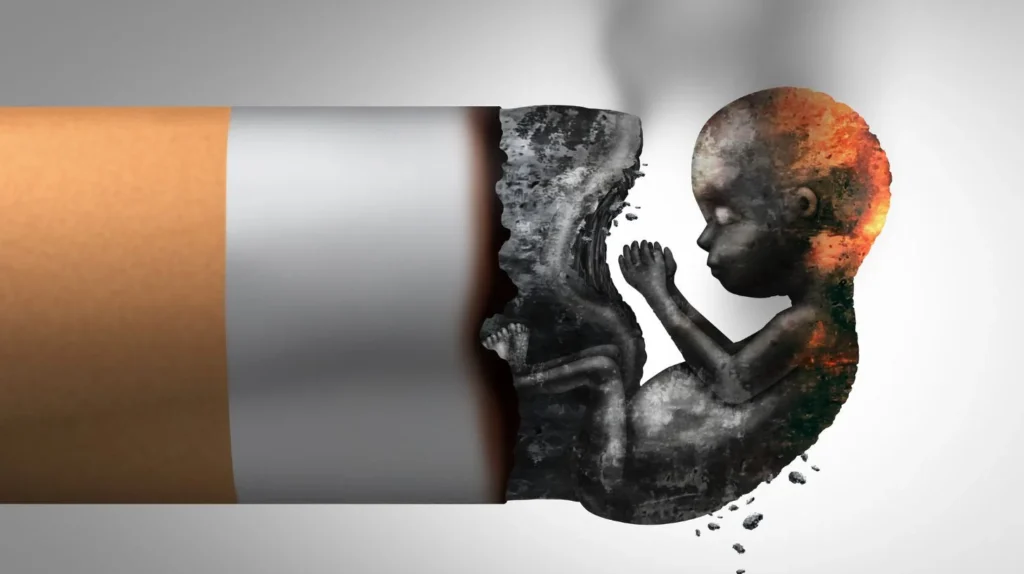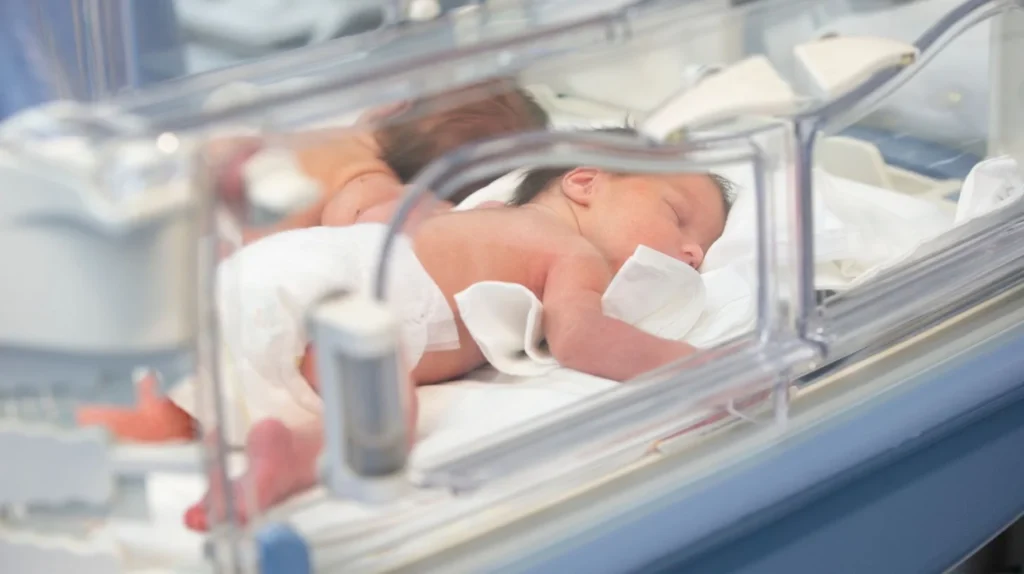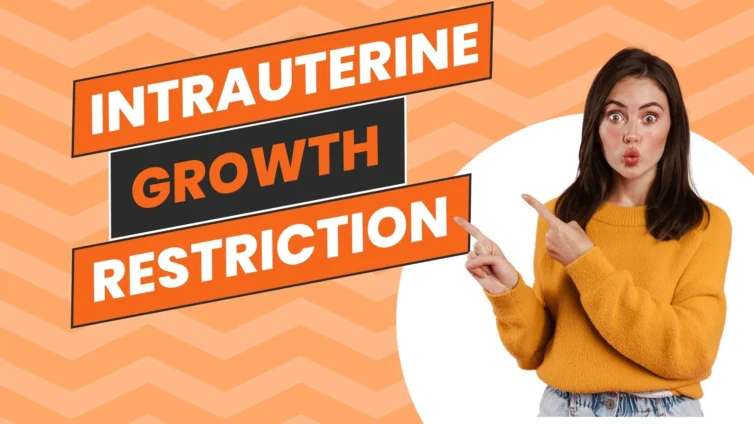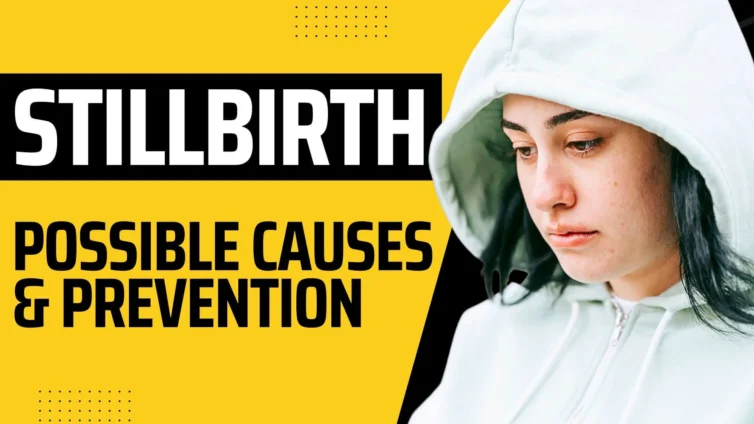
Smoking during pregnancy is a topic that has been widely discussed, yet the alarming risks associated with it continue to be a concern for many expectant mothers. If you’re a pregnant woman or planning to become one, understanding the dangers of smoking during pregnancy is crucial. Not only does it affect your health, but it can also have devastating effects on your unborn baby. From low birth weight to serious health problems, the consequences are far-reaching.
In this comprehensive guide, we will explore the risks of smoking during pregnancy, the impact of secondhand smoke, and provide valuable insights to help you quit. Whether you’re a smoker or exposed to secondhand smoke, this guide aims to educate, reassure, and empower you to take the essential steps for a healthy pregnancy. Let’s delve into the facts, dispel the myths, and uncover the truth about smoking and pregnancy.
Introduction to Smoking and Pregnancy
Understanding the Connection Between Smoking and Pregnancy
The act of smoking during pregnancy is more than just a personal choice; it’s a decision that affects both the mother and the unborn baby. The smoke from a cigarette contains thousands of chemicals, including nicotine, carbon monoxide, and tar. These substances can cross the placenta and reach the unborn baby, causing serious health problems.
When a pregnant woman smokes, she exposes her baby to harmful substances that can affect the baby’s growth and development. The risks of smoking during pregnancy are well-documented, and they include complications such as low birth weight, preterm birth, and even birth defects. As can be seen, by these examples, the harmful effects of smoking are not limited to the mother’s health; they extend to the unborn baby, affecting its development and future health.
Why Quitting Smoking is Essential for a Healthy Pregnancy
Quitting smoking is one of the best things a pregnant woman can do for her baby’s health. The sooner a woman quits smoking, the better it is for both her and her baby. Even reducing the number of cigarettes smoked can make a difference.
Quitting smoking can be challenging, but the benefits are immense. It reduces the risk of pregnancy complications, improves the baby’s health, and even helps in the overall well-being of the mother. Many resources are available to help you quit, including support groups, counseling, and medications. It’s never too late to quit, and the support of family and friends can make a significant difference.
For more insights on pregnancy and how to ensure a healthy journey, you can explore The Ultimate Pregnancy Guide on our website.
The Dangers of Smoke During Pregnancy

How Smoking Affects the Unborn Baby
Smoking during pregnancy can cause serious harm to the unborn baby. The nicotine in cigarettes restricts the blood flow to the placenta, limiting the amount of oxygen and nutrients that reach the baby. This can lead to low birth weight, preterm birth, and other complications.
The risks of smoking during pregnancy extend beyond physical health. Babies whose mothers smoke during pregnancy are more likely to have behavioral problems and learning disabilities. The effects of smoking can also lead to long-term health issues for the child, including an increased risk of sudden infant death syndrome (SIDS) and respiratory problems.
The Risks of Secondhand Smoke
Secondhand smoke, also known as passive smoking or environmental tobacco smoke, is equally harmful to the unborn baby. Even if a pregnant woman doesn’t smoke, being exposed to secondhand smoke can cause problems with the placenta, low birth weight, and preterm birth.
Women who are exposed to secondhand smoke while pregnant are more likely to have babies with low birth weight and are at a higher risk of preterm birth. It’s essential to create a smoke-free environment for the pregnant woman, ensuring that she is not exposed to tobacco smoke at home, work, or any other place.
Understanding the dangers of smoke during pregnancy is crucial for every expectant mother. Whether it’s quitting smoking or avoiding secondhand smoke, taking these steps can significantly reduce the risks and ensure a healthy pregnancy.
How Smoking Can Lead to Low Birth Weight
The Link Between Smoking and Low Birth Weight
Low birth weight is a common complication associated with smoking during pregnancy. When a pregnant woman smokes, the harmful chemicals in tobacco smoke can restrict the flow of oxygen and nutrients to the baby. This restriction can lead to a baby being born with a low birth weight, defined as weighing less than 2.5 kg.
Research shows that smoking during pregnancy increases the risk of having a low birth weight baby by about 2 to 3 times. The more cigarettes a pregnant woman smokes, the higher the risk. Even exposure to secondhand smoke can contribute to low birth weight.
Long-term Health Problems Associated with Low Birth Weight
Babies born with low birth weight are not just smaller in size; they are at risk for serious health problems. These may include:
- Chronic Health Conditions: Such as asthma and heart disease later in life.
- Developmental Delays: Including learning disabilities and behavioral problems.
- Infections: Low birth weight babies are more susceptible to infections.
- Sudden Infant Death Syndrome (SIDS): The risk of sudden infant death is higher in babies with low birth weight.
Low birth weight can also affect a child’s health and development as they grow, leading to ongoing challenges in education and social interactions. For more insights on baby development during pregnancy, you can explore this guide.
Smoking and Placenta Complications

How Smoking Affects the Placenta
The placenta is a vital organ during pregnancy, providing the unborn baby with nutrients and oxygen. Smoking can cause problems with the placenta, affecting its function and potentially leading to serious complications.
When a pregnant woman smokes, the chemicals in tobacco smoke can cause the blood vessels in the placenta to narrow. This reduces the blood flow to the baby and can lead to complications related to the placenta.
Risks and Pregnancy Complications from Smoking
Smoking during pregnancy increases the risk of various complications related to the placenta, including:
- Placenta Previa: This condition can cause severe bleeding during pregnancy and delivery. You can learn more about Placenta Previa symptoms, causes, and treatment here.
- Placental Abruption: A serious condition where the placenta separates from the uterus before the baby is born, leading to a risk of preterm birth and stillbirth.
Understanding the risks and taking steps to quit smoking can prevent these complications and contribute to a healthier pregnancy. If you’re looking to adopt a healthy lifestyle, this guide to healthy habits in pregnancy may provide valuable insights and encouragement.
Understanding Miscarriage and Smoking
How Smoking Increases the Risk of Miscarriage
Miscarriage is a heartbreaking event, and understanding the risks associated with smoking can help in prevention. Smoking during pregnancy increases the risk of miscarriage by affecting the health of the eggs and sperm, reducing blood flow to the uterus, and increasing the chances of chromosomal abnormalities.
Research indicates that women who smoke are more likely to experience a miscarriage compared to non-smokers. The risk increases with the number of cigarettes smoked, and even passive smoking can contribute to this risk.
Ways to Reduce the Risk
Quitting smoking before getting pregnant is one of the best things a woman can do to reduce the risk of miscarriage. Support from family, friends, and healthcare professionals can make this transition easier. Here are some strategies to help:
- Create a Quit Plan: Outline your reasons for quitting, set a quit date, and identify triggers that make you want to smoke.
- Seek Professional Help: Programs and counseling specifically designed for smoking cessation during pregnancy can be highly effective.
- Use Support Systems: Friends, family, and support groups can provide encouragement and motivation.
For more information on miscarriage prevention, you can read about miscarriage causes, symptoms, and prevention here.
Preterm Birth and Smoking

How Smoking Leads to Preterm Birth
Preterm birth, defined as birth before 37 weeks of pregnancy, is another serious risk associated with smoking during pregnancy. The ways smoking affects pregnancy outcomes are not fully understood. Potential pathways include vasoconstriction, fetal hypoxia, hormone production changes, and altered responses to oxytocin.
The Consequences of Preterm Birth
Preterm birth can lead to a range of health problems for the baby, both immediately after birth and later in life. These may include:
- Respiratory Distress Syndrome: Difficulty in breathing due to immature lungs.
- Developmental Delays: Including cognitive, motor, and behavioral challenges.
- Vision and Hearing Problems: Preterm babies are at higher risk for these issues.
- Chronic Health Conditions: Such as cerebral palsy and chronic lung disease.
The risk of preterm birth can be significantly reduced by quitting smoking before or during pregnancy. Support and resources to help you quit smoking are available, and making this change can have a profound impact on the health of your baby.
Birth Defects Linked to Smoking
How Smoking Causes Birth Defects
Smoking during pregnancy can cause a range of birth defects in the unborn baby. The harmful substances found in cigarette smoke, such as nicotine, carbon monoxide, and tar, can reach the baby through the placenta and have detrimental effects on development.
These substances can interfere with the baby’s oxygen supply and cause problems with the formation of organs, bones, and tissues. The risk of birth defects increases with the number of cigarettes smoked, and even exposure to secondhand smoke can be harmful.
Common Birth Defects Associated with Smoking
Some of the birth defects linked to smoking include:
- Cleft Lip and Palate: Smoking during the first trimester can increase the risk of these facial deformities.
- Heart Defects: Babies whose mothers smoke during pregnancy are more likely to be born with congenital heart problems.
- Limb Defects: Such as clubfoot or shortened arms and legs.
- Gastrointestinal Problems: Including defects in the intestines and abdominal wall.
Quitting smoking before or during pregnancy can significantly reduce the risk of these and other birth defects.
Getting Pregnant and Smoking

How Smoking Affects Fertility
Smoking not only affects pregnancy but also the ability to become pregnant. Both men and women who smoke may face fertility challenges. In women, smoking can damage the ovaries, leading to problems with ovulation. In men, it can reduce sperm quality and count.
Research shows that smoking reduces fertility in women, making it harder to conceive. It can also increase the time it takes to get pregnant.
Improving Fertility by Quitting Smoking
Quitting smoking can improve fertility and increase the chances of a healthy pregnancy. Here’s how:
- Restore Ovarian Function: Quitting smoking can help restore normal ovarian function and increase the success rate of fertility treatments.
- Improve Sperm Quality: Men who quit smoking can see improvements in sperm quality, quantity, and mobility.
- Enhance Overall Health: Quitting smoking improves overall health, creating a more favorable environment for conception and pregnancy.
If you’re planning to start a family, quitting smoking is a crucial step. Support and resources are available to help you make this positive change.
Understanding the risks of smoking during pregnancy and taking the necessary steps to quit can pave the way for a healthy pregnancy and a thriving baby. Whether you’re trying to conceive or already pregnant, the decision to quit smoking is one of the most important you can make for the future of your family.
How to Quit Smoking During Pregnancy
Support and Resources to Help You Quit
Quitting smoking can be a challenging journey, especially during pregnancy. However, it’s never too late to quit, and there are various support systems and resources available to help you on this path.
- Consult Your Doctor: Your doctor can provide personalized advice and support tailored to your needs. They can help you understand the best strategies to quit smoking and monitor your progress.
- Join Support Groups: Connecting with others who are on the same journey can provide encouragement and motivation. Many hospitals and communities offer support groups specifically for pregnant women trying to quit smoking.
- Use Quitlines and Apps: There are hotlines and apps designed to provide support and guidance for those trying to quit smoking. These can be particularly helpful for providing immediate assistance when cravings strike.
- Consider Nicotine Replacement Therapy (NRT): Under the guidance of your doctor, NRT can be a useful tool. It provides a controlled and reduced amount of nicotine to ease withdrawal symptoms.
The Benefits of Smoking Cessation During Pregnancy
Quitting smoking during pregnancy offers immediate and long-term benefits for both you and your baby:
- Healthier Pregnancy: Reduced risk of complications such as miscarriage, preterm birth, and low birth weight.
- Better Growth and Development: Your baby will receive more oxygen and nutrients, promoting healthier growth and development.
- Easier Labor and Delivery: Non-smokers often experience fewer complications during labor and delivery.
- Healthier Childhood: Babies born to non-smoking mothers are less likely to suffer from respiratory problems, obesity, and other health issues later in life.
Quitting smoking is a gift you can give to yourself and your baby. It’s a decision that promotes a healthier pregnancy and a brighter future for your child.
Key Takeaways
1. Smoking During Pregnancy: Smoking and exposure to secondhand smoke during pregnancy can lead to serious health risks for both the mother and the unborn baby, including low birth weight, preterm birth, and birth defects.
2. Quitting is Essential: Quitting smoking before or during pregnancy significantly reduces these risks and promotes a healthier pregnancy and child development.
3. Support and Resources: Various support systems, including doctors, support groups, and quitlines, can assist in quitting smoking. Nicotine Replacement Therapy (NRT) may also be an option under medical guidance.
4. Long-term Benefits: Stopping smoking leads to immediate and long-term benefits, including easier labor, healthier childhood, and reduced risk of future health problems for the child.
Final Thoughts
Smoking during pregnancy poses serious risks to both the mother and the unborn baby. From low birth weight to birth defects and fertility challenges, the harmful effects of smoking are far-reaching. Even secondhand smoke can cause problems, emphasizing the importance of a smoke-free environment.
Quitting smoking is a vital step towards a healthy pregnancy and a thriving baby. It requires determination, support, and the right resources. Whether you’re planning to get pregnant or already expecting, quitting smoking is a decision that will have a lasting positive impact on your family’s health.
If you or someone you know is struggling with smoking during pregnancy, don’t hesitate to seek help. Reach out to healthcare professionals, join support groups, and utilize the tools available to you. Remember, it’s never too late to quit, and the benefits are well worth the effort.
By understanding the risks of smoking during pregnancy and taking proactive steps to quit, you’re setting the stage for a joyful and healthy journey into motherhood. Your efforts today will contribute to a brighter and healthier future for your child.
FAQs about risks of smoking during pregnancy
Can smoking during pregnancy cause complications?
Yes, smoking during pregnancy can cause serious complications such as miscarriage, low birth weight, preterm birth, and birth defects. It’s vital to quit smoking for the health of your baby.
How does secondhand smoke affect a pregnant woman?
Secondhand smoke, or passive smoking, exposes the pregnant woman and unborn baby to harmful tobacco smoke. This can lead to similar risks as direct smoking, including low birth weight and preterm birth.
What are the risks of smoking while pregnant?
Smoking while pregnant increases the risks of ectopic pregnancy, miscarriage, birth defects, and complications with the placenta. It can also affect the overall health of your baby.
How can I quit smoking during pregnancy?
Quitting smoking during pregnancy may require professional help, support groups, and a commitment to a healthy lifestyle. Your healthcare provider can guide you to resources to help you quit.
Does smoking affect getting pregnant?
Yes, smoking can affect getting pregnant. Research shows that smoking reduces fertility in women. Quitting smoking before getting pregnant improves fertility and ensures a healthier pregnancy.
Can smoking cause problems with the placenta?
Smoking during pregnancy increases the risk of problems with the placenta, including placenta previa and placental abruption. These complications can be harmful to both the mother and the baby.
Is it enough to reduce the number of cigarettes I smoke while pregnant?
While reducing the number of cigarettes may decrease some risks, the best choice for the health of your baby is to stop smoking entirely during pregnancy. Even a small amount of smoke can be harmful.
What are the effects of maternal cigarette smoking on the child’s health?
Maternal cigarette smoking can lead to long-term health problems in the child, including respiratory issues, developmental delays, and an increased risk of sudden infant death syndrome (SIDS).





